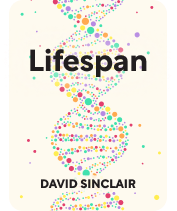

This article is an excerpt from the Shortform book guide to "Lifespan" by David Sinclair. Shortform has the world's best summaries and analyses of books you should be reading.
Like this article? Sign up for a free trial here .
Can humans live forever? And if so, should we? What are the wider implications of human immortality?
Living forever is an attractive yet controversial idea. There are a number of ethical implications concerning immortality. Some of the chief concerns include overpopulation, economic inequality, and stagnation of scientific and social progress. Biologist David Sinclair addresses these concerns in his book Lifespan, coming to the conclusion that humanity has got what it takes to overcome them.
Keep reading to learn about the implications of human immortality, according to David Sinclair.
Causes for Concern
In imagining a world where people never die, Sinclair starts by outlining some of the potential problems. Some of his chief concerns are:
- Stagnating scientific and social advancements. Sinclair says that progress doesn’t happen by winning over the opposition, but because the (usually older) opposition eventually dies off—if people start living for hundreds of years, that won’t happen.
- Widening wealth gaps as rich people live longer and invest more in politics to get even richer at everyone else’s expense. To make matters even worse, the wealthy will almost certainly have access to life-extending treatments long before poor and working class people do.
- Overpopulation leading to starvation, mass poverty, and worsening climate change
| Should We Live Forever? In Antifragile, Taleb says that people living forever would be a serious detriment to the species. In brief, Taleb’s theory of antifragility—becoming stronger after being damaged—is that an antifragile system must be made up of fragile parts. An unexpected or stressful event destroys some of those fragile units, and then the rest of the system responds by not just repairing the damage, but by becoming strong enough to withstand that event in the future. A simple example is lifting weights: The exercise damages your muscles, which then become stronger as they heal. If we consider the human race to be a system, and each person to be a part of that system, Taleb’s theory means that individuals living forever (in other words, losing their fragility) would paradoxically make the human race fragile. Perhaps some unexpected shock to the system—a disease, a war, or a natural disaster—would leave us unable to respond and recover thanks to Sinclair’s theorized stagnating science and social issues. Or, perhaps we’d simply wipe ourselves out through overpopulation. Speculation aside, Taleb (and many others) would argue that we should not only ask can we live forever, but should we? |
Causes for Optimism
Despite the risks, Sinclair says that there are numerous reasons for us to be optimistic about human immortality. In short, he believes that people can and will overcome any of the previously mentioned problems through human ingenuity and grit.
Scientific and Economic Boosts
Sinclair imagines a world where people have the wisdom and experience of the elderly with the strength and energy of the youth. He believes that, with such people driving society, our rates of productivity and advancement would skyrocket—the exact opposite of the stagnation he talked about in the previous section.
(Shortform note: There is a correlation between increased life expectancy and increased productivity, which supports Sinclair’s idea here. On the other hand, correlation is not causation: it’s equally possible that some outside factor like improved technology explains both the increased life expectancy and the increased productivity. In short, both this idea and the possible stagnation from the previous section are just speculation on Sinclair’s part.)
Sinclair also says that people staying healthier for longer will be a boon to the economy. As it stands now, elderly people stop contributing to the economy at the same time that they become expensive to care for, which places an enormous burden on the economy. Therefore, keeping people healthier for longer will create more wealth; that wealth, in turn, will fund research and treatments to keep more people healthier for longer.
(Shortform note: Sinclair lives in the US and writes from an American perspective. It’s worth noting that, globally, the US ranks 46th in average life expectancy yet has the highest per capita spending on health care—in other words, nations where people tend to live longer still manage to spend far less per person than the US does. This suggests that there are other factors at work than simply how many elderly people live in the nation. Thus, age alone might not be the economic burden that Sinclair thinks it is, and rejuvenating treatments might not provide the boost he expects.)
Overpopulation Concerns May Be Overblown
Estimates of the maximum human population that Earth can support range anywhere from 8 billion (which we’ve already reached) to 16 billion. Sinclair says that a few estimates even place the maximum at around 100 billion people.
More to the point, most of those estimates don’t account for technological and societal advancements. In other words, they estimate the current maximum population that Earth could sustain, but by the time we reach that number, the true maximum could be far higher.
In fact, Sinclair says we should question the idea that there even is a maximum human population—it seems obvious that there must be a limit, but there’s no solid evidence to prove it. Perhaps technology will keep pace with our ever-growing population, offering ways to house and feed more people than we’d ever thought possible. For example, we could imagine floating cities, food replicators like those on Star Trek, and the possibility of colonizing other worlds.
Sinclair also points out that the last two centuries saw the biggest population boom in history, but at the same time we greatly improved quality of life for most people in the world: better education, better health care, better living conditions, and so on. Therefore, there’s no reason to assume that further increasing the population will reverse that trend.
Furthermore, even as our population increases, the environmental impact of each individual is going down. We’ve made great strides in reducing air and water pollution, and we’re moving toward using cleaner energy sources. There’s little doubt that we’ll continue making such advancements.
(Shortform note: Sinclair is severely downplaying the environmental impact of an ever-increasing human population; while it might be true that each individual will cause less harm as technology continues to advance, the overall harm we cause is still enormous. For example, a study from 2015 calculated (using very conservative estimates) that vertebrate species are currently going extinct 100 times faster than the natural extinction rate. It would take some truly incredible advances in clean energy production, agriculture, and waste management to offset the damage if our population keeps growing.)
Finally, birth rates have much more impact on the total population than death rates. Sinclair says that, globally, about 55 million people die each year—which sounds like a lot, but it’s nowhere near as many as are born each year.
(Shortform note: Again, Sinclair might be overly optimistic here. In 2020, the global population experienced roughly 140 million births and 60 million deaths, for a total increase of about 80 million people. If anti-aging technology had prevented or greatly reduced those 60 million deaths, the overall increase in population could have been nearly twice what it was—140 million people instead of 80 million—which is much more significant than Lifespan makes it sound.)

———End of Preview———
Like what you just read? Read the rest of the world's best book summary and analysis of David Sinclair's "Lifespan" at Shortform .
Here's what you'll find in our full Lifespan summary :
- Why biologist and geneticist David Sinclair believes old age is a curable disease
- The potential problems of a world where people never die
- How the elderly stifle the economy






